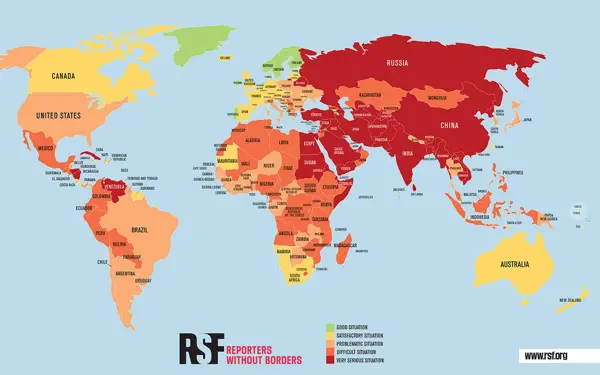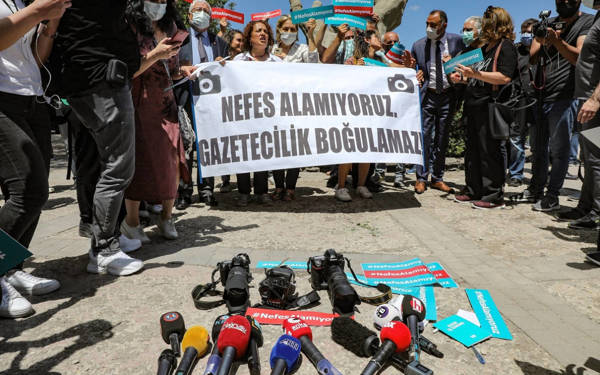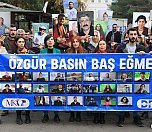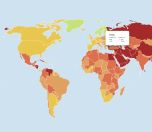Reporters Without Borders (RSF) released its annual press freedom index this week. The index comprises 180 countries and assessed the state of journalism in 28 countries as ''very bad'', a record high. Where Türkiye found itself last year in 153rd place with a score of 50.21, it actually climbed to the 149th spot in 2022 with a lower score of 41.25, indicating that press freedom globally is under stress.
Particularly, Middle Eastern and North African countries sank further on the list, with Tunisia, Palestine, and Lebanon having the most severe drops. The watchdog described the situation in the area as never been so troubling.
Disinformation law
According to the 20th edition RSF's index, the decline of press freedom is mainly the effect of news and information chaos, fueled by globalized and unregulated online information that encouraged fake news and propaganda.
Ironically, in Türkiye's case, its recent disinformation law, passed on October 14, is being slammed by the organization. With the new legislation, journalists can face up to three years of incarceration for disseminating information misleading the public. Often coined as the ''censorship law'', oppositional parties and journalist groups fear that the new bill is aimed to silence critics ahead of the government ahead of the 2023 elections, as what constitutes ''spreading disinformation'' is kept vague.
The watchdog argues that authoritarianism is gaining ground, media pluralism is challenged, and all possible means are used to undermine critics in Türkiye. The government already controls around 90% of the national media, which in turn moved the public in the last five years towards critical or independent media outlets. Discriminatory practices against journalists and media outlets remain common, as journalists get stripped of their press cards or are targets of lawsuits accusing them of ''insulting'' well-known religious figures. According to RSF numbers, Türkiye currently has 23 journalists and 1 media worker in jail.
126 media representatives faced trials
According to bianet's own Media Monitoring Report, in the 3rd quarter of 2022, 126 media representatives faced trials, and at least 5 journalists were detained. In the wake of the 2023 elections, similarly to the 2019 elections, mechanisms of intimidation and attacks are present. Between July and September, at least 20 media representatives were attacked. Journalists from media agencies reporting on Kurdish topics have been mainly targeted. For example, 16 journalists were arrested in Diyarbakır in June. (WM/VK)








.jpg)

